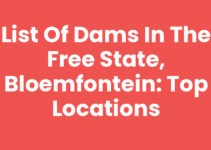Bloemfontein, the capital of the Free State province in South Africa, boasts a unique and evolving economy. As the sixth-largest city in South Africa, it serves as a major administrative and economic hub. In this post, we will delve deeply into the Bloemfontein economy, exploring its key functioning areas, current trends, challenges, and opportunities for growth.
Bloemfontein Economy: Key Insights
The Bloemfontein economy is characterized by a diverse range of sectors including agriculture, manufacturing, services, and tourism. Understanding these sectors is vital as they each contribute significantly to the local economy.
Agriculture
Agriculture remains one of the cornerstones of the Bloemfontein economy. The surrounding regions are known for their fertile soil and favorable climate, making it ideal for farming. Key operations include the production of crops such as maize, sunflowers, and various livestock. The agricultural sector not only provides jobs but also supports associated industries like food processing.
Manufacturing
While not as dominant as agriculture, the manufacturing sector is critical in terms of job creation and economic output. Bloemfontein features several manufacturing firms that specialize in textiles, food production, and building materials. A focus on developing this sector has been supported by local government initiatives to attract more businesses.
Service Sector
As the administrative capital, the service industry plays a significant role in the Bloemfontein economy. This sector encompasses banking, healthcare, retail, and education—all of which provide a considerable number of jobs and contribute to the community’s welfare. Growth in the service sector is pivotal for ensuring sustained economic development.
Tourism
Tourism in Bloemfontein has significant potential. The city is known for its rich history and cultural heritage, attracting visitors to its museums, historical sites, and natural beauty. Despite recent challenges, the tourism sector is slowly recovering and could be a key driver for future economic growth.
You Might Also Like: Where is the Safest Place in Bloemfontein for Families?
Challenges Facing the Bloemfontein Economy
Despite its strengths, the Bloemfontein economy faces several challenges. High unemployment rates, especially among the youth, are a major concern. The local government is actively seeking investment opportunities to tackle these issues. Other challenges include infrastructure development, the need for skilled labor, and competition with larger cities.
See Also: Exploring Woltemade Street, Bloemfontein: A Hidden Gem
Future Prospects for the Bloemfontein Economy
Looking ahead, the Bloemfontein economy has several opportunities for growth and development. Investments in renewable energy, technology, and improved infrastructure are critical requirements for tapping into the potential of the local economy. Partnerships between government and private sectors can foster innovation and attract investments.
Investments in education and training also promise to bolster the workforce’s skill set, positioning Bloemfontein as a competitive player in various markets.
Recommended Reading: Exploring Third Avenue, Bloemfontein: Your Ultimate Guide
Conclusion
The Bloemfontein economy presents an interesting case of resilience and potential. With its diverse sectors and proactive strategies, there is a clear path toward sustainable economic growth. Engaging the community and promoting development initiatives will be vital in navigating the challenges faced and unlocking future opportunities.
Related Guide: Discover Bayswater, Bloemfontein: A Hidden Gem in South Africa
Frequently Asked Questions
What are the main sectors supporting the Bloemfontein economy?
The main sectors include agriculture, manufacturing, services, and tourism.
What challenges is the Bloemfontein economy currently facing?
Challenges include high unemployment rates, infrastructure needs, and skilled labor shortages.
What are the future prospects for the Bloemfontein economy?
Opportunities exist in renewable energy, technology, and education, fostering long-term economic growth.



